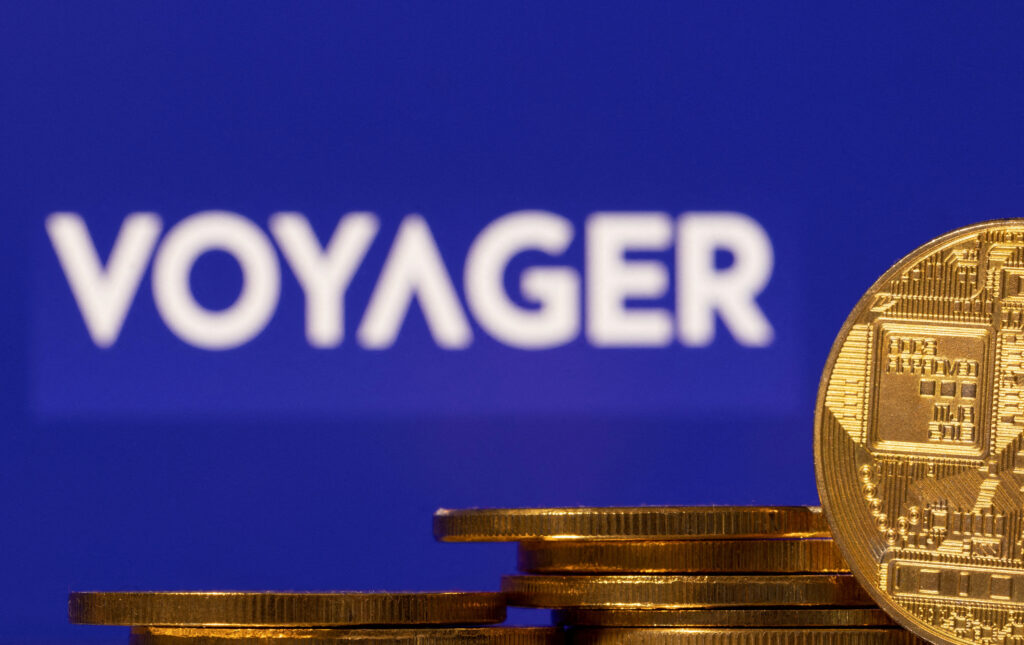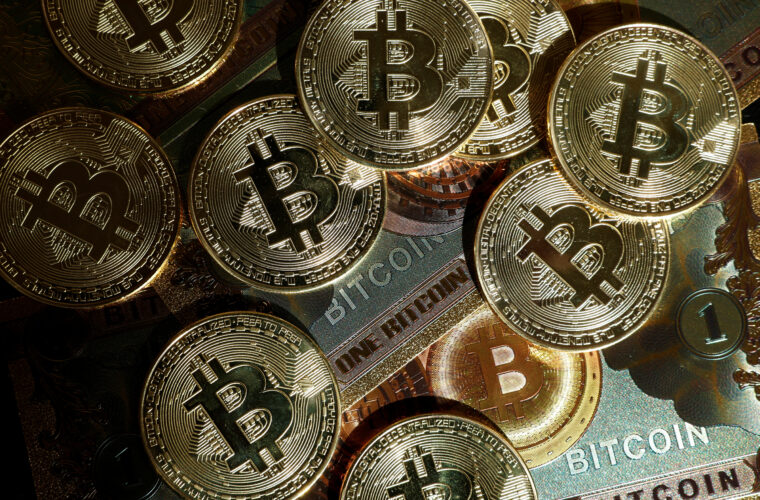
By Dietrich Knauth
NEW YORK (Reuters) – Crypto lender Voyager Digital said Wednesday that customers will recover about 35% of their cryptocurrency deposits as the company winds down its operations after a failed buyout attempt by crypto exchange Binance.US.
U.S. Bankruptcy Judge Michael Wiles approved Voyager’s proposed liquidation plan at a court hearing in Manhattan on Wednesday, allowing the company to return about $1.33 billion in crypto assets to customers and end its efforts to reorganize under Chapter 11.
Voyager filed for bankruptcy protection in July, citing volatility in cryptocurrency markets and a default on a large loan made to crypto hedge fund Three Arrows Capital (3AC).
Voyager suffered through two failed sale attempts during its bankruptcy. It initially sought to sell its assets for $1.42 billion to FTX, a deal that failed when FTX imploded in November. Binance.US stepped in with a $1.3 billion offer, but called off the deal on April 25, citing a “hostile and uncertain regulatory climate.”
Voyager customers’ recovery hopes are highly dependent on the outcome of litigation with FTX, which is seeking to claw back $445.8 million in loan repayments made to Voyager before FTX collapsed into bankruptcy.
If Voyager fully prevails in the FTX litigation, customers’ expected recovery would be 63.74%, according to Voyager’s court filings.
Voyager intends to repay customers with the same type of cryptocurrency that they had in their accounts. For deposits held in unsupported cryptocurrencies that cannot be withdrawn from Voyager’s platform and for Voyager’s proprietary VGX token, Voyager will instead repay customers using the stablecoin USDC.
Voyager was one of several crypto lenders to file for bankruptcy in 2022 after a boom in the COVID-19 pandemic. Others were Celsius Network, BlockFi, and Genesis Global Capital.



